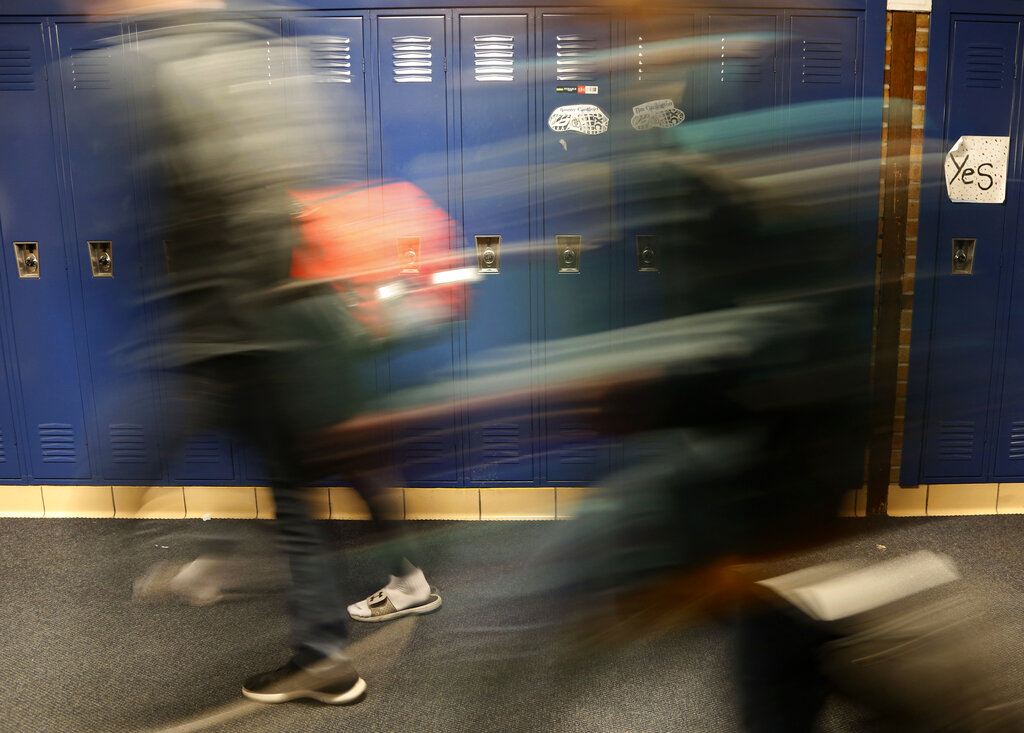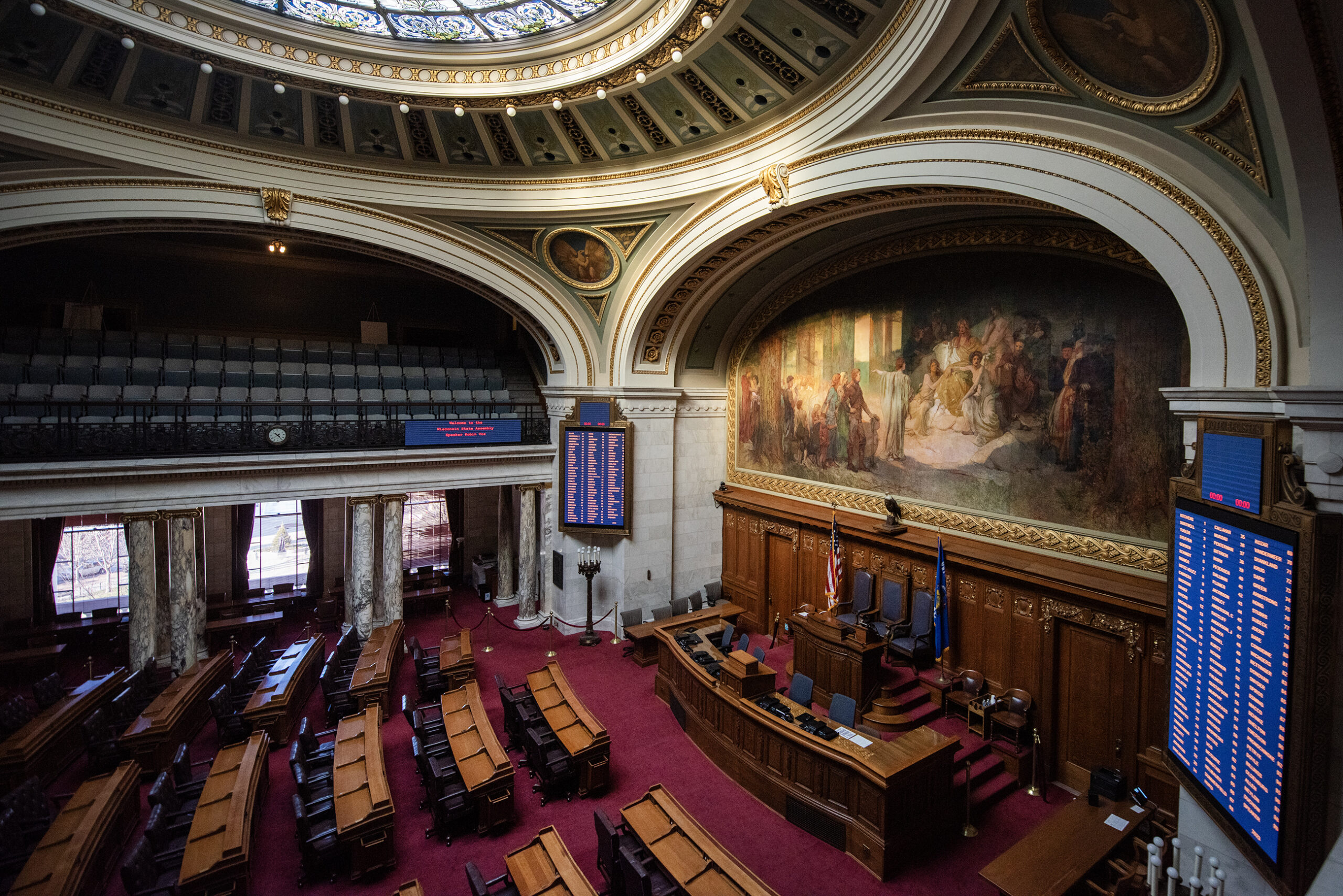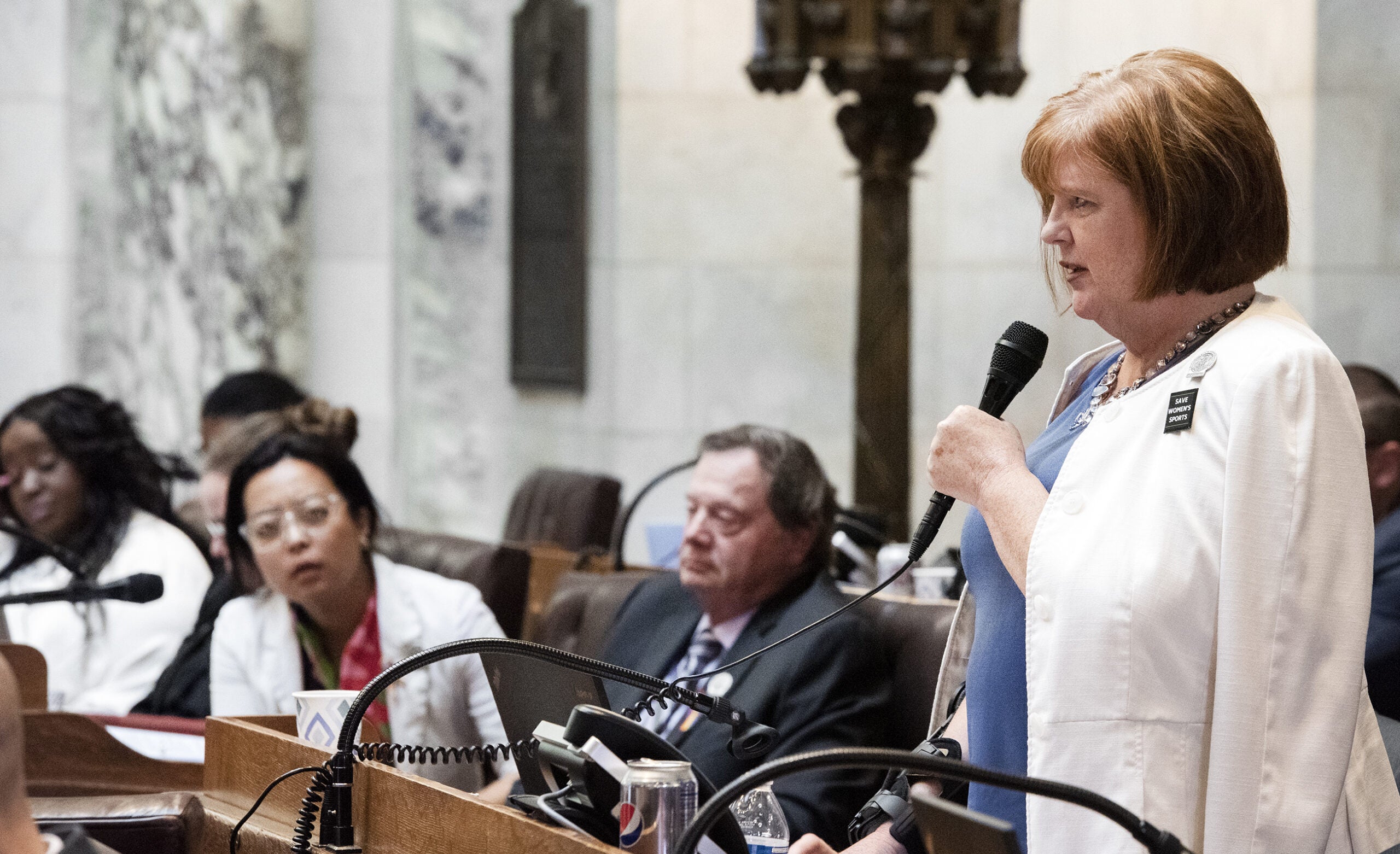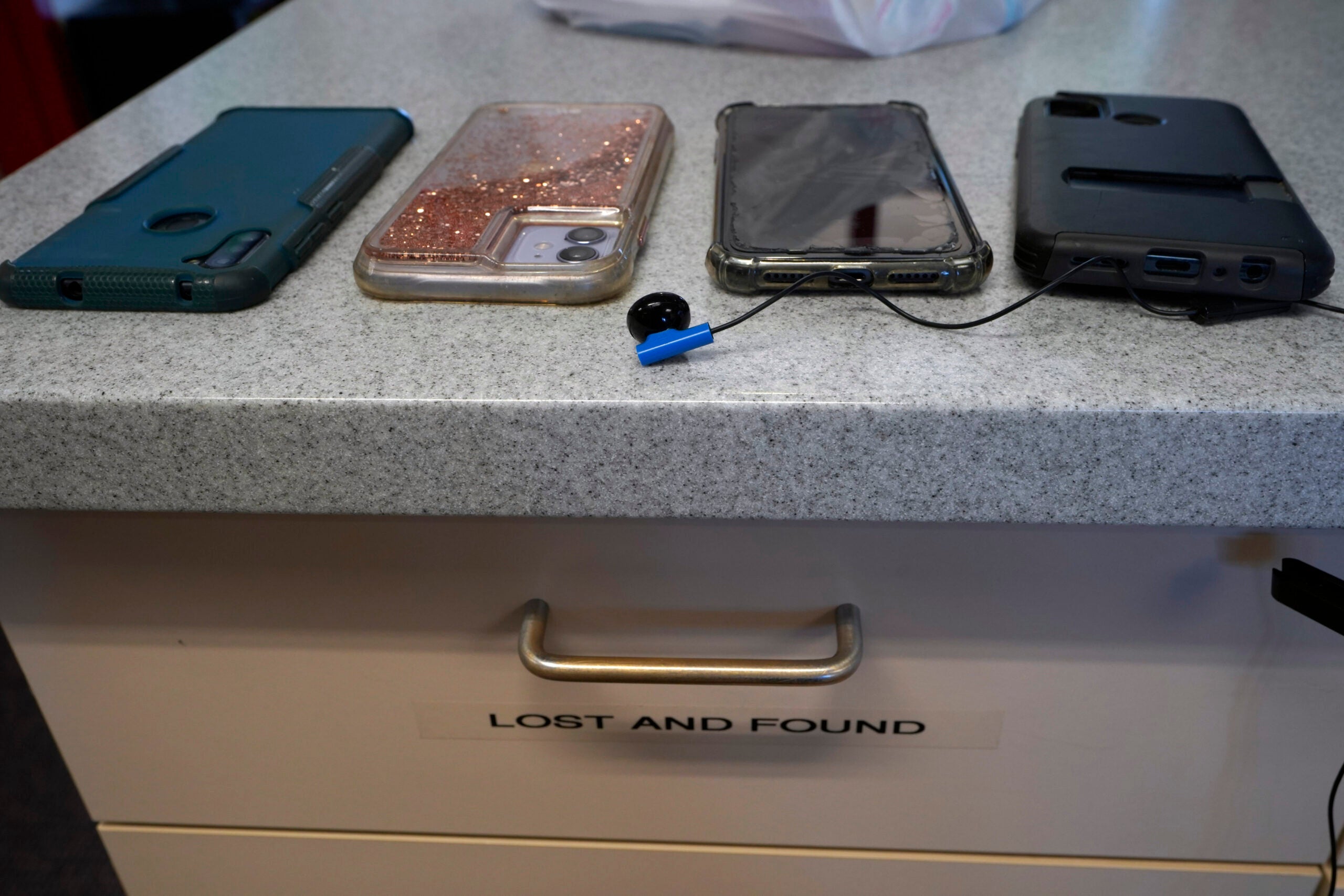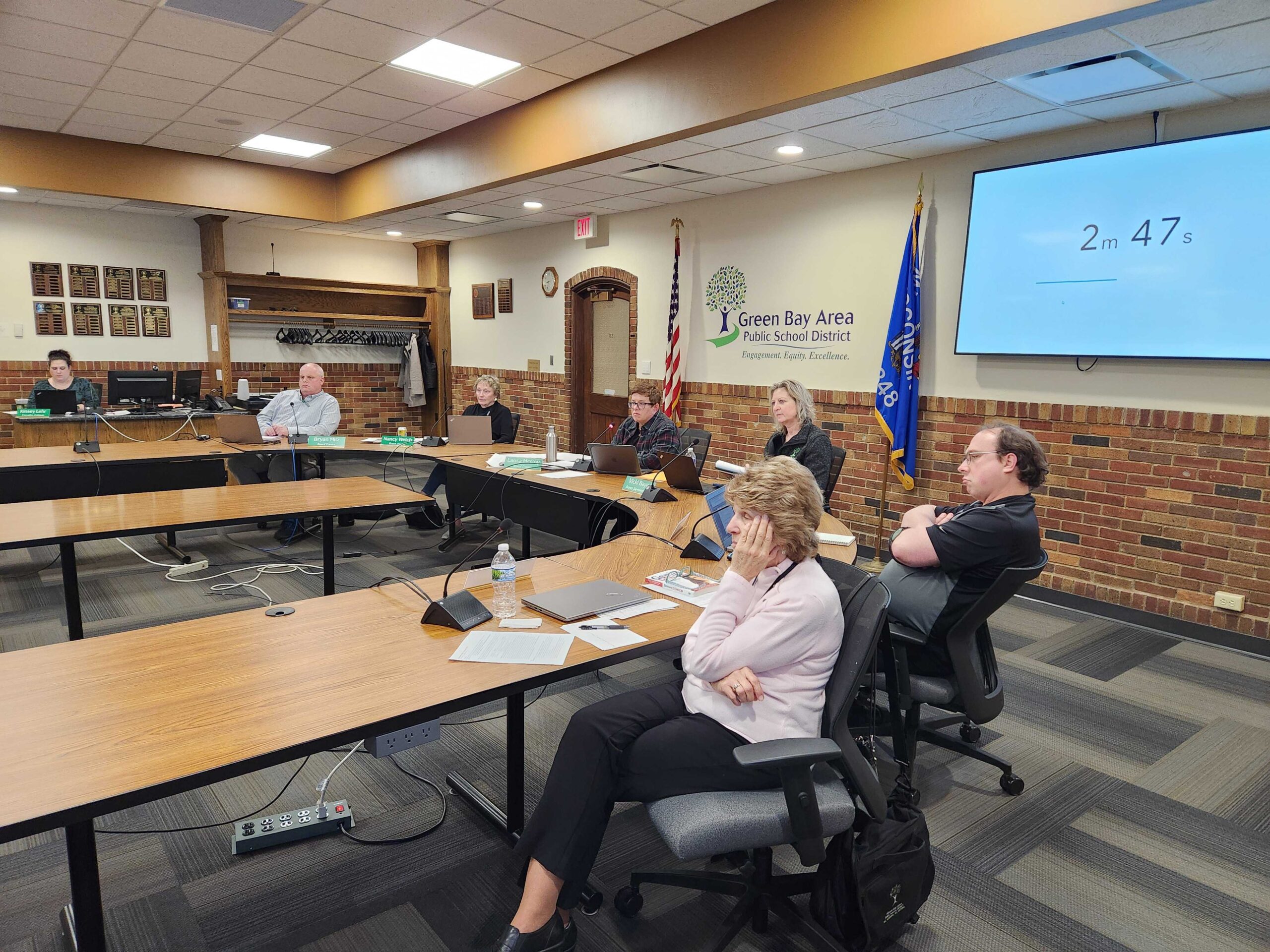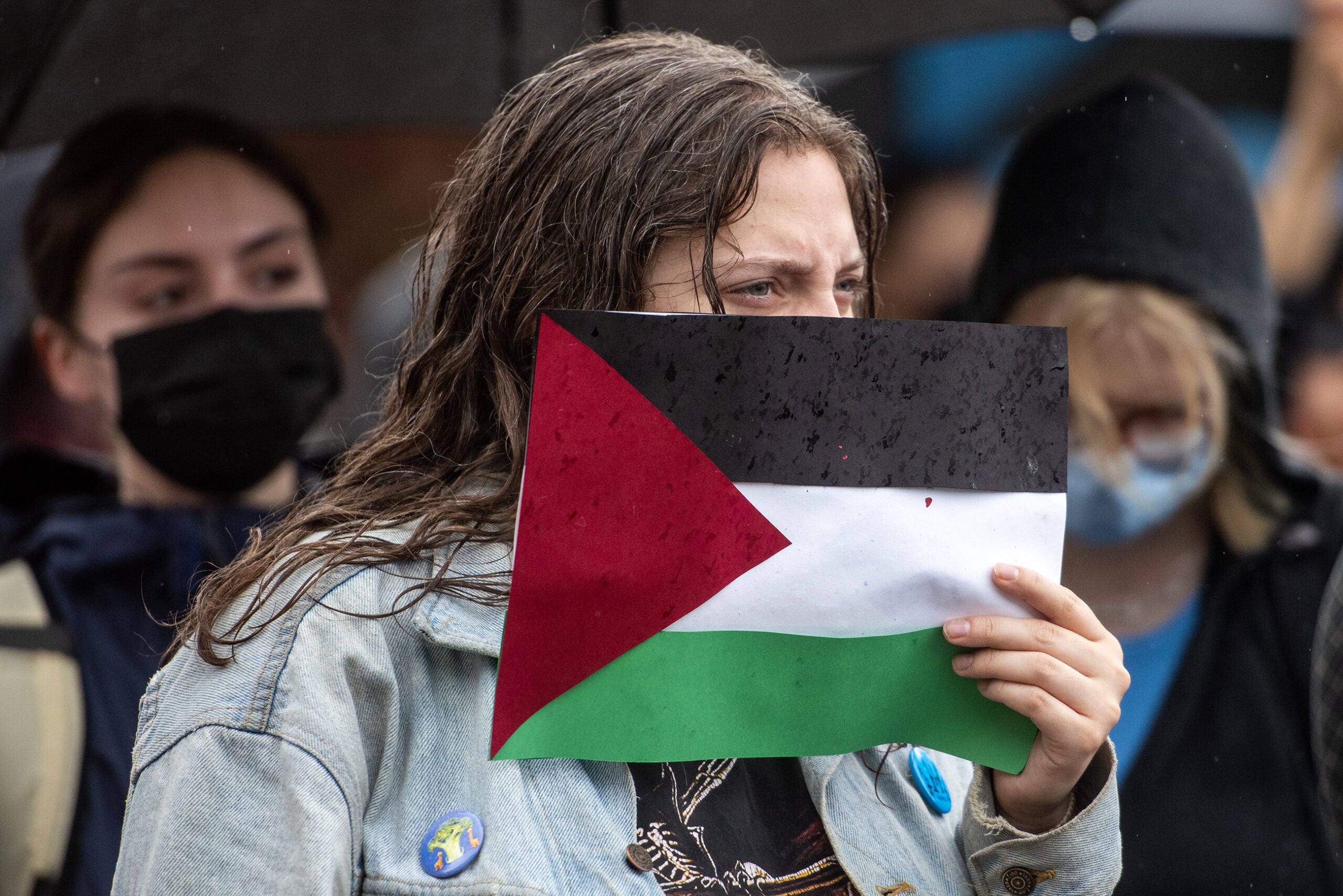While Kerri Pingel was a student at a private Christian high school, she said that a school official began asking her for graphic descriptions of her intimate encounters with her boyfriend. In the middle of standard school days, Pingel said the official would sometimes share his own graphic stories, then send the 16-year-old back to class.
In a workplace, that would be considered sexual harassment. But her experience shone a light on what Pingel called “loopholes” in Wisconsin state law about sexually inappropriate behavior in schools, especially private schools that are exempt from certain federal laws.
Pingel and legal advocates were the motivation behind a bipartisan plan introduced in the Wisconsin state Legislature, which would make sexual misconduct against students a felony.
Stay informed on the latest news
Sign up for WPR’s email newsletter.
“It is appalling that it is legal to sexually harass children in Wisconsin,” she said at a press conference last week.
State law already bans sexual assault in schools, which is defined as sexual activity that takes place between an employee or volunteer over age 21 and a student. Separately, sexual harassment is already a crime in workplaces.
But the kind of experience that Pingel described were not reported by her school nor prosecuted by law enforcement because it fell somewhere in between those legal protections, she said. Separately, Title IX, a federal law protecting students from discrimination on the basis of sex — which is often leveraged to protect students against sexual harassment and assault — does not apply to private schools.
“As an adult, I understand what grooming is, who is at fault in this situation, why mandated reporter and statutory rape laws exist, and how some misuse power to take advantage of the vulnerable,” Pingel said. “Children do not understand these things.”
As written, the bill would make it a felony for school employees or volunteers to create an intimidating or hostile environment through sexual misconduct. It would also make this type of behavior an offense requiring mandatory reporting. People convicted of certain crimes against children, including sexual misconduct against students, would permanently lose their licenses.
“We were pretty amazed” that sexual misconduct by adults in school settings is not currently outlawed, said Rep. Tod Ohnstad, D-Kenosha.
Ohnstad said the legislation is partly modeled on similar laws in Texas and Minnesota.
In addition to Ohnstad, the measure is being cosponsored Rep. John Spiros, R-Marshfield, Sen. Jesse James, R-Altoona and Rep. Tip McGuire, D-Kenosha.
Wisconsin Public Radio, © Copyright 2025, Board of Regents of the University of Wisconsin System and Wisconsin Educational Communications Board.
